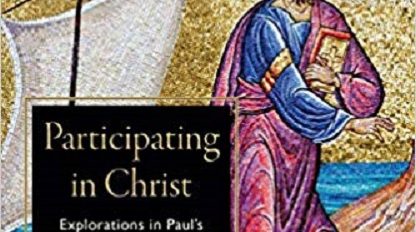
If Philippians 2:6-11 is a central description of what God’s cruciform love looks like in the person of Jesus Christ, the introductory verse of Philippians 2:5 is critical for understanding how Paul intends us to understand the implications for our lives and identity.
A complication is that there are different potential translations and interpretations of what the NRSV translates as “Let the same mind be in you that was in Christ Jesus”
Gorman highlights two of the main ways the passage has been interpreted. Is it about imitating Jesus’ mindset or continuing in the identity we already have in Christ? An example of this would be in the ESV translation: “Have this mind among yourselves, which is yours in Christ Jesus.”
The bulk of this chapter is a fairly technical proposal that Gorman puts forward for a third way of understanding and translating this passage. The in-depth rationale he presents for his translation will probably be difficult to follow for most readers, but we can take a look at where he lands and examine its implications.
He prefers to render Philippians 2:5 this way: “Cultivate this mindset – this way of thinking, acting and feeling – in your community, which is in fact a community in the Messiah Jesus.”
My sense of the core distinction between imitation and participation for Gorman is to guard against the idea of Jesus as just a moral example that we are to follow, which could be substituted by any other really good or moral person we should follow.
Gorman doesn’t like the word imitation, but there is a role for active response to who God is revealed to be. The difference as I see it, is that we cannot imitate from the outside, as if we are apart from Jesus trying to be like Him. Instead, to be a Christian, we are intrinsically drawn into community that is literally “in Christ”, participating in the continuing life of God in the pattern of Jesus the Messiah whose story reveals the character and nature of God in Philippians 2:6-11.
As he puts it, in Christ Jesus, “those who live in the Messiah are to be conformed to the pattern of his self-humbling and self-emptying, not merely as imitators of a model, but as persons whose fundamental identity is to participate in him and thus in his story.”
My core takeaway is the understanding that to be ‘in Christ’ is more than imitation of an ideal or example, but an entry into a community shaped and indwelt by God; Father, Son, Spirit.
If it all sounds way too esoteric and lofty; perhaps it’s useful to consider some related questions:
